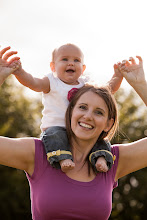I just read an article in Maclean's about diagnosing kids with ADHD when they might just be immature for their class and I just had to write about it. This issue really irks me because I firmly believe that the abundance of ADHD diagnoses out there is a result of the combination of poor parenting and overworked teachers. I am also firmly against medicating children this way.
While working with the Air Cadet Program, I used to run summer courses for 12-13 year olds. In one summer I had three groups of 33 children. Each group was from a different area of BC and when we went camping it was up to me to make sure they got any prescribed medications. In the group from Greater Vancouver, 11 of those 33 were medicated for ADHD. Another girl was on Effexor, an antidepressant that I took during a tumultuous time in my mid-twenties. Thirteen. Years. Old. She was half my size and was on the same dosage that I was. I know from experience that that particular drug is highly addictive and hard to get off of. If I missed my dose by even an hour I was subject to severe vertigo and nausea. I was with these kids for two weeks straight and I can tell you that every single one of them was perfectly pleasant and thrived in the pseudo-military environment of the cadet camp. Structured classes, calling people by their ranks and marching didn't seem to present a problem to any of them and I suspect it didn't have a lot to do with the medication.
I don't know a lot about ADHD and I am certain that there are cases where this is a true problem that requires some form of treatment but I think that if parents spent a little more time with their kids, teaching them things like self-discipline and paying attention to their needs, and if teachers weren't so overworked and exhausted that their first reaction to a kid not raising his hand is calling the parents or begging for them to be medicated, there would be fewer diagnosed cases of a disorder that most kids eventually grow out of. And while we're at it, how about some serious, unsupervised old-fashioned time playing outside? I don't think it's a coincidence that the most medicated group was the kids from the city.


My suspicion is that a large number of AD(H)D diagnoses are simply kids -- especially boys -- whose temperaments are on the far right of the spectrum (energetic, spirited, intense, emotional), but whose parents and/or teachers lack the tools to bring out the positive aspects of this particular personality type and to mitigate some of the less desirable behaviours. It's not "poor" parenting/teaching, or a lack of discipline; rather it is a lack of understanding of how these children's minds and bodies work. A label or diagnosis is convenient, in that it absolves all concerned, including the child himself, of any responsibility in the matter.
ReplyDeleteIronically, even though the current generation is the most spoilt and babied in history, in certain ways we expect more of our children than ever before. Children of previous generations had plenty of time for unstructured imaginative and physical play, which enabled them to "sit down and shut up" when needed. Nowadays they are scheduled to the hilt. They go from school to soccer practice to music to tutoring, with no downtime -- not even a moment to enjoy a relaxed sit-down family dinner. Instead of walking or bicycling to school, they are chauffeured. Recess (outdoor free play) gets cancelled when it's too hot, too cold or too rainy. Class sizes are bigger, and there is more material than ever to cram into a six hour school day; thus, the school environment favours passive and compliant children.
The mom who moved her kid to a different school had the right idea: it was the environment, not the child. Medication is a band-aid solution to what may not even be a "problem" in the first place.
J and I are already starting to look at alternatives to the traditional school system - philosophies such as Waldorf, Montessori and Reggio Emilio, that view enthusiasm, energy, extroversion and emotional sensitivity as attributes, rather than conditions to be medicated away.